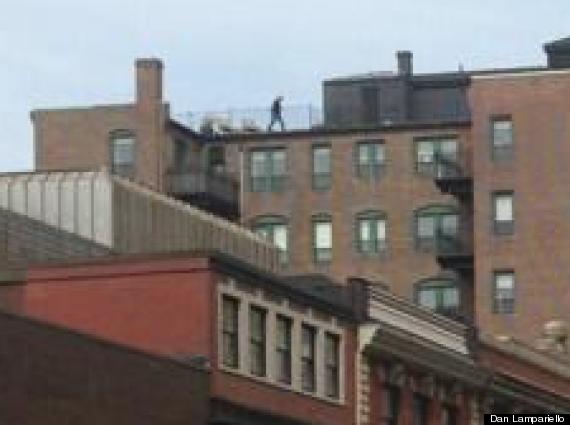Something Awful Happened? There's a Conspiracy Behind It.
(Editor's Note: This piece began soon after the Boston Marathon bombing, but with so much new information coming out so quickly, I held off on it so it wouldn't be dated.) I wanted to write a response to David Wiegel's article at Slate claiming it would be difficult for anyone to concoct a conspiracy theory explaining the bombing at the Boston Marathon. Not surprisingly, Farhad Manjoo and Amanda Marcotte beat me to it.
When there's an information vacuum for a tragedy like this, almost any speculation sounds plausible. I'm frankly surprised at the amount of misinformation that was floating around- even several days later, I saw claims that the government shut down cell phone service,[ref] I find this one particularly interesting. Yes, cell phone service did go down after the bombing, but it was because the cell towers were overloaded with people trying to make calls. Compare that with this scene from JFK, where Mr. X tells Jim Garrison that the phone service went out in D.C. after the President was shot- and it's evidence for a massive plot at work. [/ref] and that unexploded bombs were found. The wounded count seemed to fluctuate wildly depending on which article I read.
Then I saw that there was a man standing on a rooftop when the bomb went off. This is important because there's no way he could've just been watching the marathon- he has to have some sinister motive.
Human beings love putting information into narratives- it's one of the ways we make sense of the world. When something like this happens, it goes without saying that there are lots of details flying around that often contradict each other. As time goes on and we collect more evidence about what happened, the pieces that don't fit get discarded, and we're left with something that is more or less The Truth.
But the details we heard about when it all first happened are so inviting aren't they? What if those details were really suppressed by some larger Organization to keep The Truth hidden, and not because they were... wrong.
Wiegel is right that the abundance of videos and photographs will make certain facts indisputable. There were two explosions, seconds apart. I don't think anyone can argue there were four or five. But every frame of the Zapruder Film has been examined time and again, and we still can't agree on what happened in Dealy Plaza.
Plus, much of the misinformation in the Boston Marathon bombing seem to be about things that weren't caught on video- the fire at the JFK Library, the cell phone service, the unexploded bombs. Even so, the confederate on the rooftop was captured in a photo- a blurry, distant one at that.
I'm particularly interested in these conspiracy theories because the Political Thriller I'm writing is largely about conspiracy theories.[ref] I hate it when I'm when what I'm writing starts getting really relevant, really fast. Art is supposed to imitate life, not the other way around. [/ref] I think it's fascinating (and tragic and harmful) that someone might latch onto one of these convoluted narratives, in spite of all evidence to the contrary. There's actually been a lot of talk about why people want to believe in conspiracy theories [ref] Coincidence? I think not! [/ref]. It's easy to ridicule the often outlandish claims that get thrown around [ref] The first time I tried writing the Political Thriller I had way too much fun making up fake book titles we'd only see in passing: Who Is Putting What In Your Tap Water?; Dinosaurs: Do They Live Among Us?; Lee Harvey Oswald: Nutjob or Norwegian? [/ref], but to some they fill an emotional void. With violent, chaotic events, convincing yourself that you alone know the real story gives you a sense of agency and control you might otherwise not have.
That's not to say there aren't real conspiracies going on. As SG Collins notes in this video,
if you follow the fake conspiracies down the rabbit hole, you'll miss the real ones. How do you tell the real plots from the concoctions? Generally, the more people involved, the more convoluted it is, the less likely to be true. People are terrible at keeping secrets. Especially groups of people.[ref] And especially the government. Ask Richard Nixon.[/ref]
Follow the news. Wait for confirmed facts. Ignore speculation. Assume incompetence before malice. Get your information from more than one source.
And whatever you do, don't read The New York Post.


